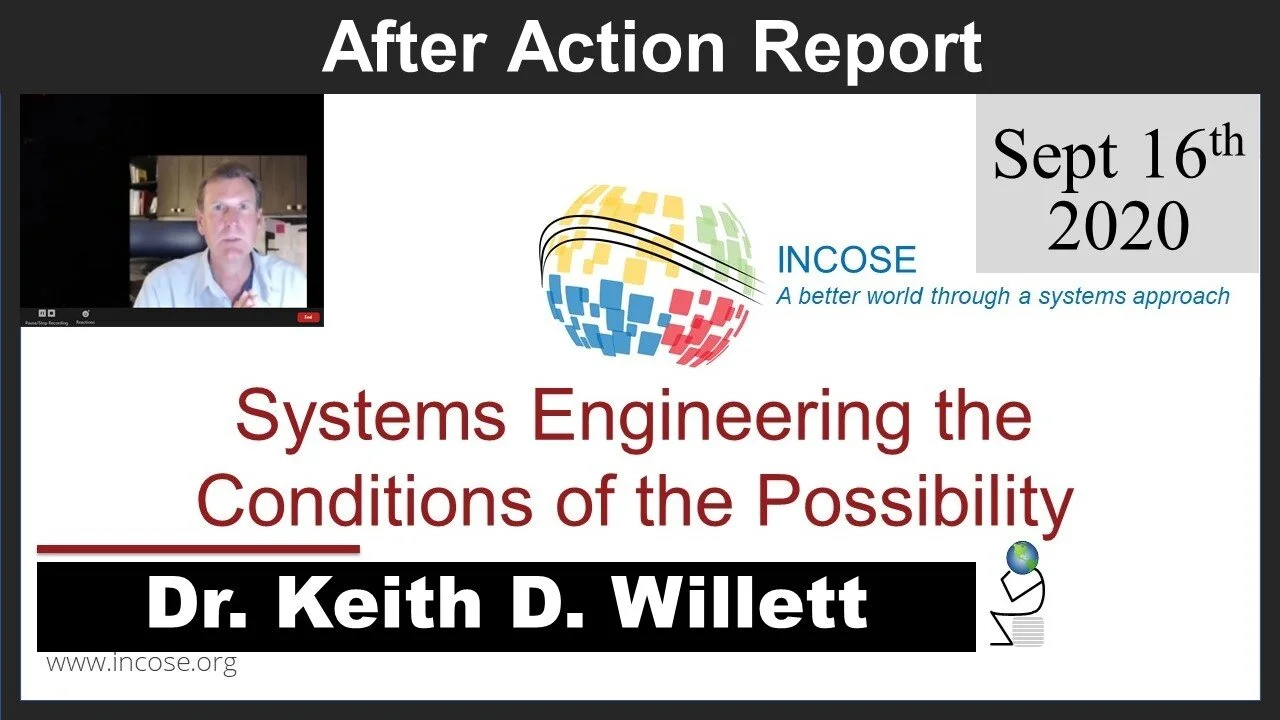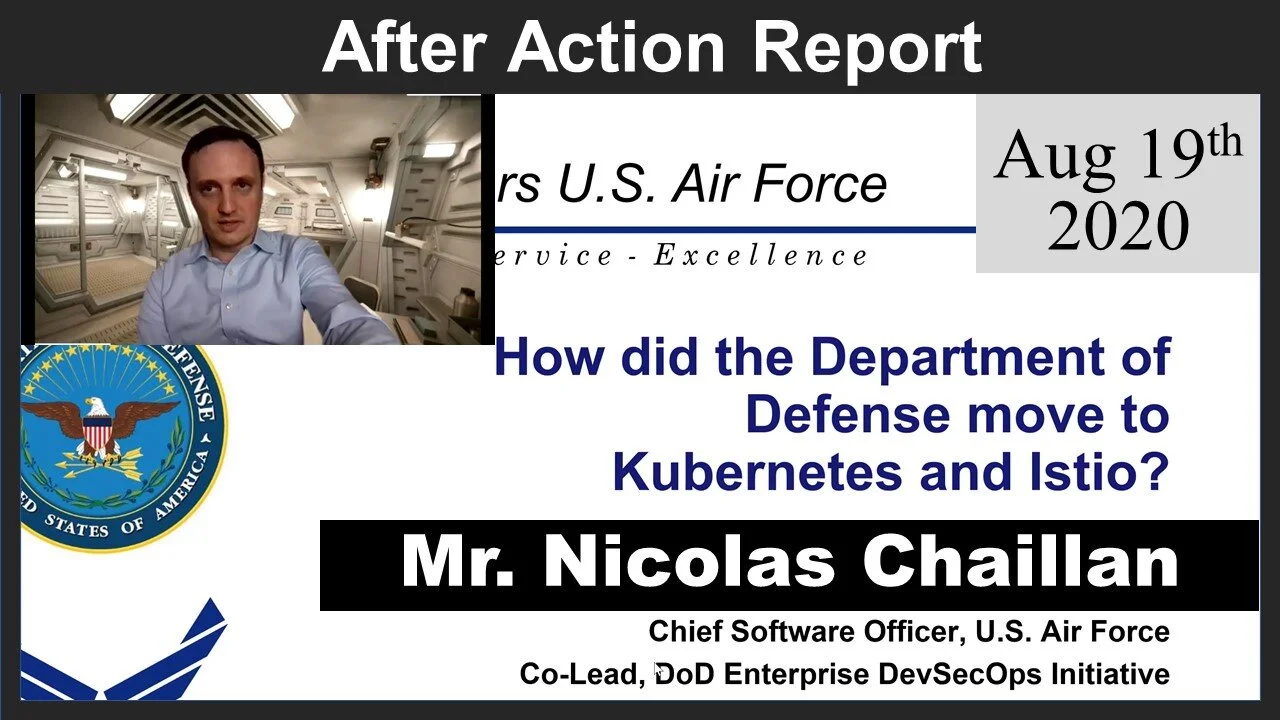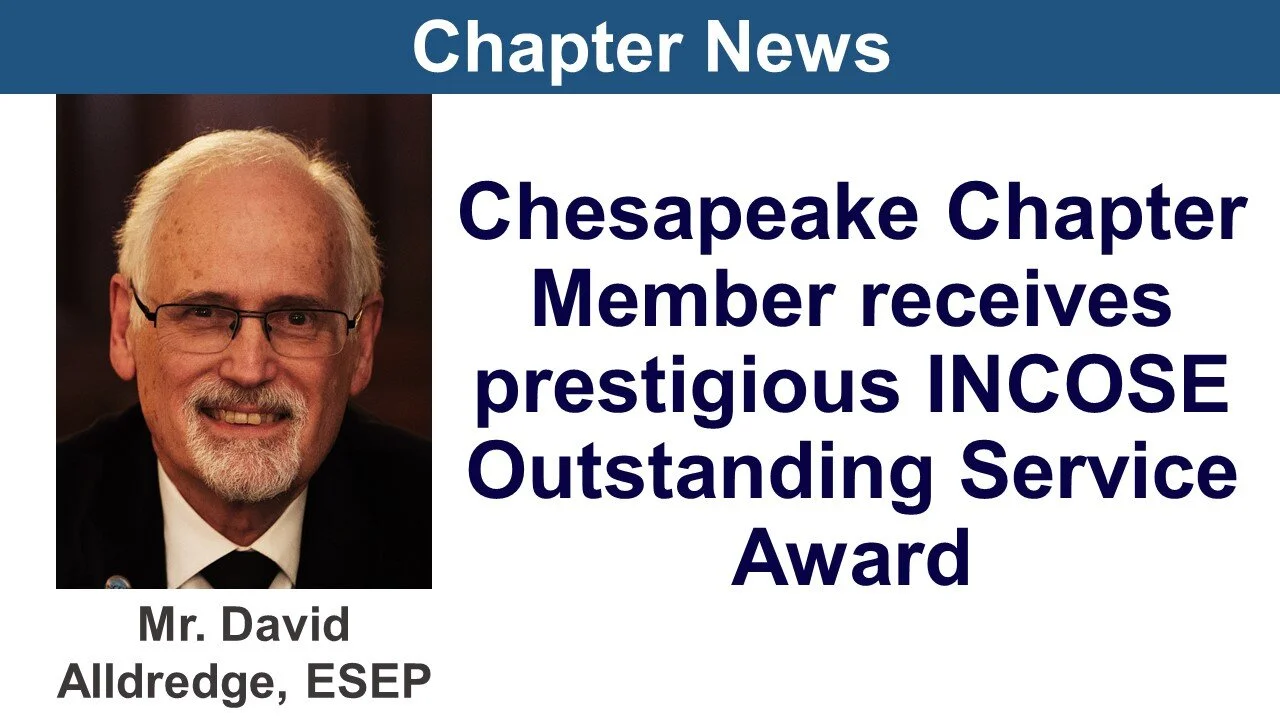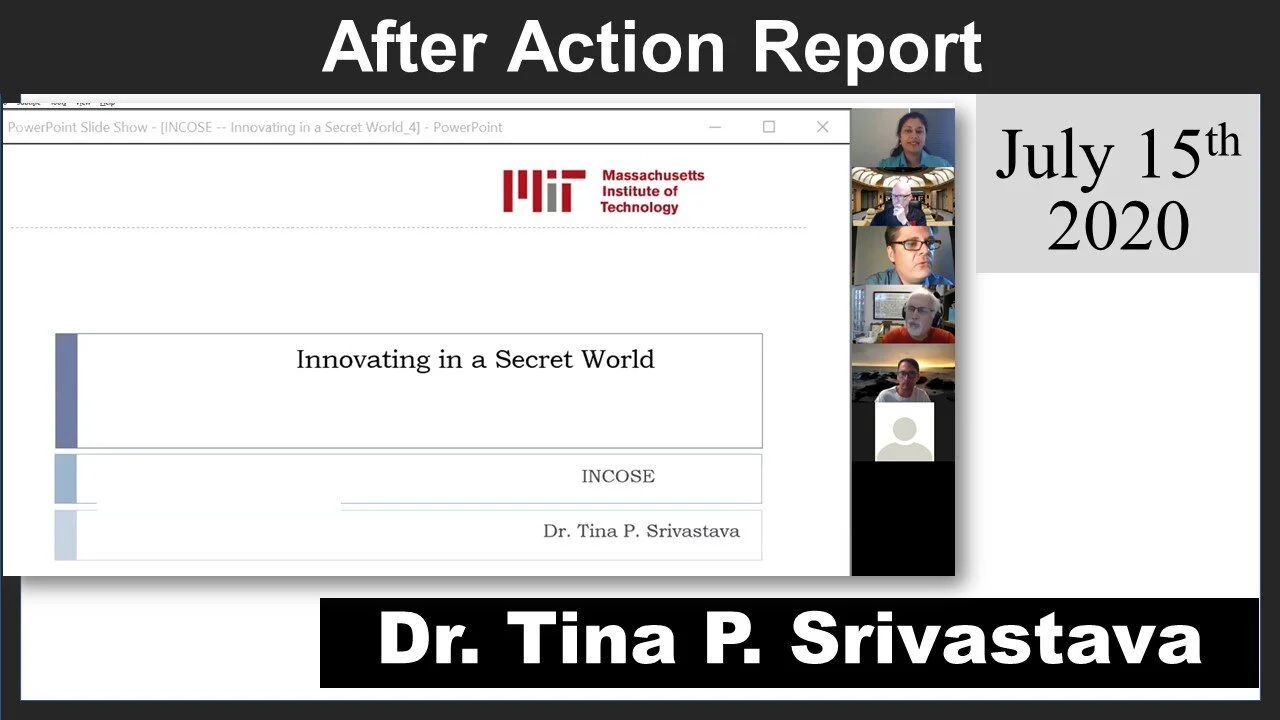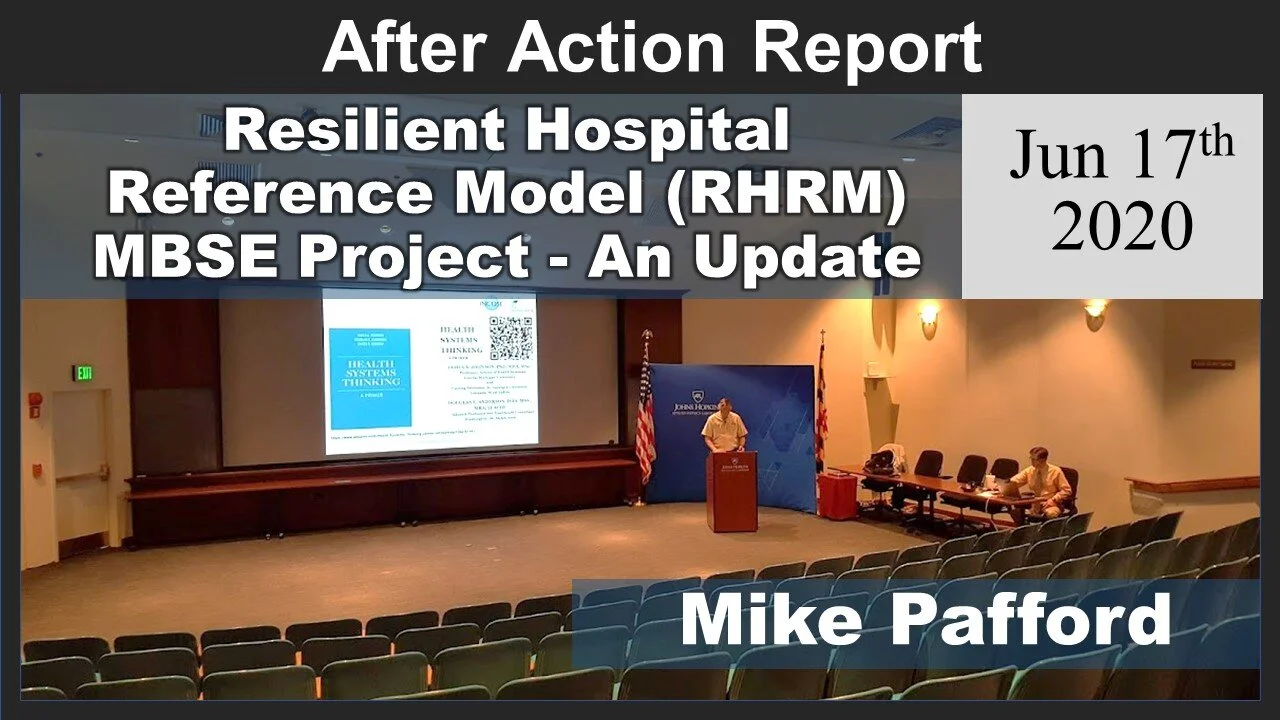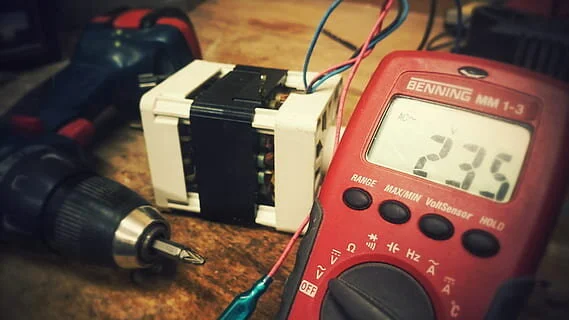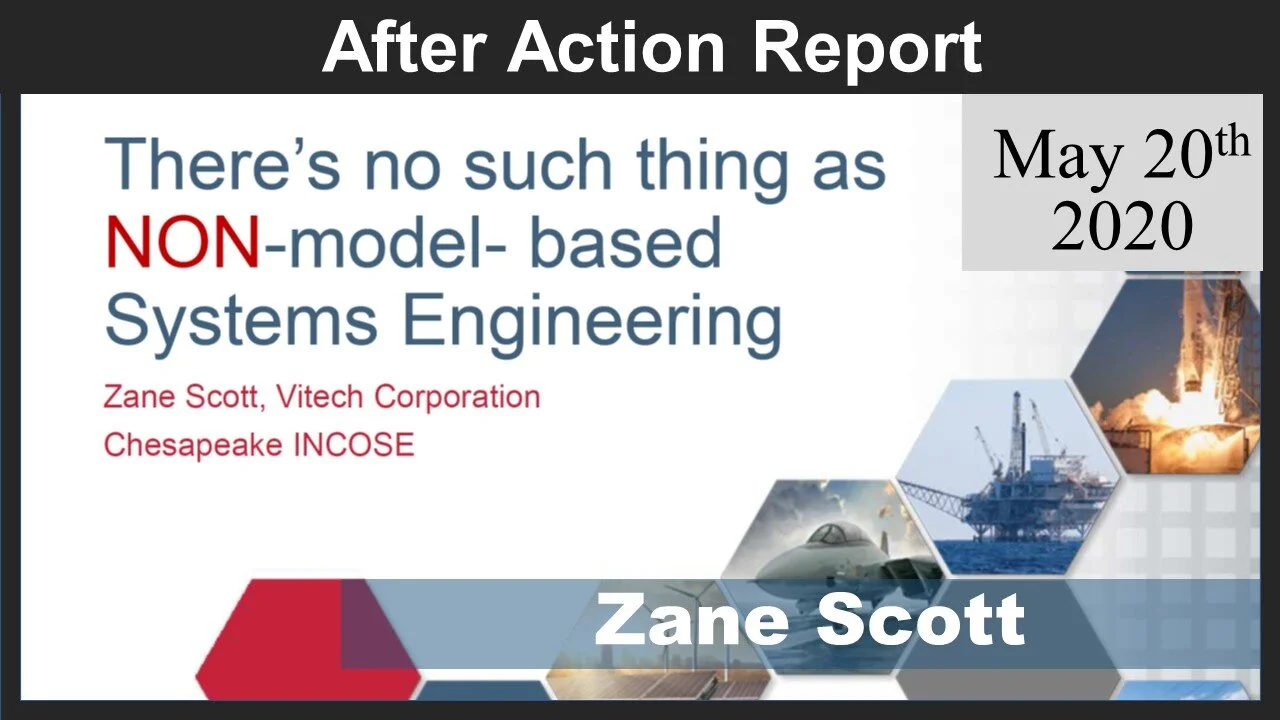Our INCOSE-CC president Mark Evans talks about increasing our community and influence by the having all our chapter members work towards increasing our overall membership.
Read MoreKeep up with all the happening in our Chapter. Download our latest Newsletter for Oct 2020
Read MoreDr. Keith D. Willett discusses the now and future discipline of systems engineering (SE v2.0) requiring tools to transcend this cause-effect approach and effectively embrace the nondeterministic, the openly defined, the blurred-boundary, the highly combinatorial if not infinite, and the adaptable. Systems engineers must design solutions to adapt to predictable and unpredictable change in order for the system to remain viable in the face of adversity (loss-driven) and relevant in the face of obsolescence (opportunity-driven). This After Action Report includes the briefing slides, screen-shots from the event and a link to the HD Video
Read MoreKeep up with all the happening in our Chapter. Download our latest Newsletter for Sept 2020
Read MoreOur INCOSE-CC president Mark Evans observes that Systems Engineers are, by their very nature, predisposed toward designing solutions to complex problems in order to serve humankind. He reviews some engineering triumpants throughout the ages and wonders, “what can systems engineering do to address the world-wide Covid-19 pandemic?”
Read MoreAir Force’s senior software czar, Mr. Chaillan explained why DoD is using DevSecOps to deliver modern software to the war fighter. This After Action Report includes the briefing slides, photos from the event and a link to the HD Video
Read MoreThe International Council on Systems Engineering (INCOSE) Chesapeake Chapter is proud to announce that one of our Chapter Members receive the prestigious INCOSE Outstanding Service Award. Congratulations to Mr. David Alldredge, ESEP.
Read MoreDr. Tina Srivastava, author of Innovating in a Secret World: The Future of National Security and Global Leadership, discussed innovation and national security, focusing on two key challenges: participation and secrecy. This After Action Report includes the briefing slides, photos from the event and a link to the HD Video
Read MoreTaras Mykytyn reflects on INCOSE-CC 2019 accomplishments that allowed the chapter to be awarded INCOSE International Platinum Circle and the President's Award for Outstanding Chapter.
Read MoreKeep up with all the happening in our Chapter. Download our latest Newsletter for Aug 2020
Read MoreKeep up with all the happening in our Chapter. Download our latest Newsletter for July 2020
Read MoreMike Pafford, past Chesapeake Chapter President, introduced and gave an update to an ongoing project by a volunteer cross-domain team (INCOSE, IEEE, FBI/InfraGard, and Medical Experts) to apply model-based analysis, engineering, and evaluation methods to develop a Resilient Hospital Reference Model (RHRM). The After Action Report includes the briefing slides, photos from the event and a link to the HD Video
Read MoreSystems engineers are potentially the best candidates for being or becoming good troubleshooters. The INCOSE Handbook identifies maintenance as a technical process. Within this framework fault identification or troubleshooting is included as a sub-activity. Troubleshooting is a form of problem-solving that requires experience and often special skills like forensic engineering. George has some great stories about using Systems Engineering while troubleshooting. [image from AB Electrical & Communications Ltd — https://www.abelectricians.com.au/ - used by permission]
Read MoreThe 2020 Operating Plan is written for the Chesapeake Chapter of the International Council on Systems Engineering (INCOSE). This plan provides the detailed operating activities for the 12 month period beginning January 1, 2020 and ending December 31, 2020.
Read MoreSSA provides expertise in Model Based Systems Engineering and currently services customers with projects that utilize MBSE throughout the full system development life cycle. SSA can provide you with either self-paced or live MBSE training.
Read MoreKeep up with all the happening in our Chapter. Download our latest Newsletter for June 2020
Read MoreThe official INCOSE 30th anniversary video was prepared for INCOSE's 30th International Symposium. Visit the Symposium website, incose.org/symp2020 for details. In producing this video, INCOSE set out to tell their rich story and to emphasize the significance of the systems engineer in addressing the earth’s grand challenges.
Read MoreZane Scott, VP for Professional Services at Vitech Corporation, discussed how we use models, where we keep and maintain them in order to promote efficient communication and how we can most efficiently and effectively communicate them. The After Action Report includes the briefing slides.
Read More


